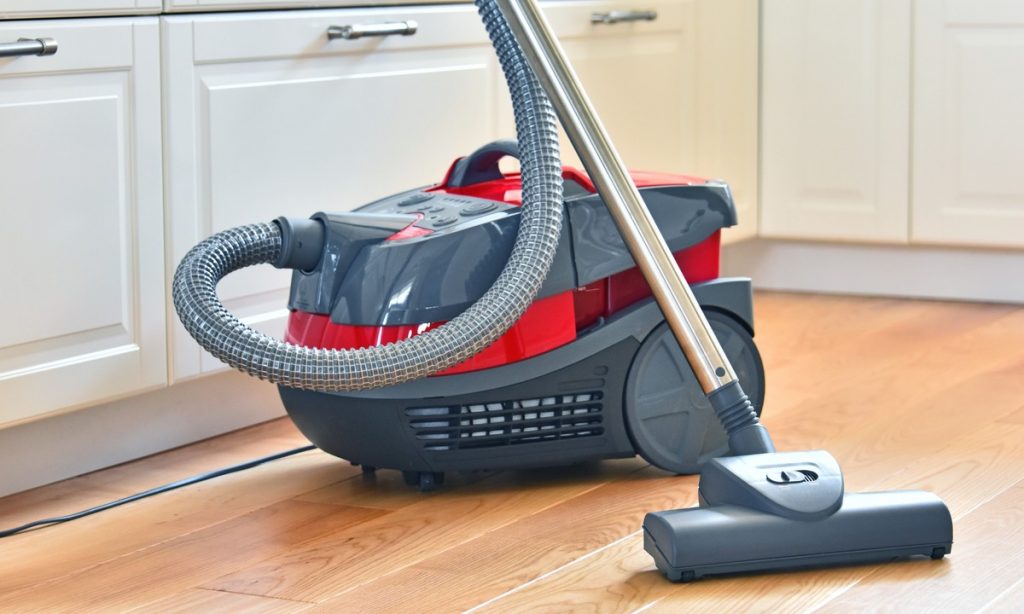What’s the Difference Between a Commercial Grade Vacuum and a Home Vacuum?

Vacuum cleaners are known for making the cleaning process a whole lot easier. There are two primary types of vacuum cleaners based on how frequent and intensive your use is. We’ll break down each type and help you understand the difference between them.
Home Vacuum — Residential Vacuum Cleaners
A residential vacuum, also known as a home vacuum, is intended for small premises and homes. They’re usually small-to-medium in size and have a decent motor and suction power to clean a normal apartment. In other words, they’re only good for residential use.
Can I Use My Residential Vacuum for Commercial Use?
You can but it won’t be of much help. Home vacuums are not heavy-duty and will not withstand extended use since commercial areas are much larger. Not only will the cleaning capacity of a residential vacuum get in the way but using a small vacuum cleaner with limited suction power and a small suction pipe will tire you considerably.
Commercial Vacuum: What Makes It Better?
Commercial vacuums are larger in size and are intended for heavy-duty use. They’re widely used in malls and industrial setups.
Durable and long lasting
Since they’re manufactured for heavy-duty use, they are built to withstand harsh temperatures and are long-lasting. A residential vacuum usually ends up needing maintenance and repairs but a commercial one is made to last you a long time, perhaps even years before needing repairs.
Performance-focused
Commercial vacuums offer great suction power, much more cleaning capacity, motor power and excellent maneuverability. Many residential vacuum cleaners claim to offer similar performance but that’s barely the case.
Extra features
Vacuum cleaners with a HEPA filter are used for controlling respiratory allergies. A high-end commercial vacuum cleaner will have a HEPA filter as well as features to trap dust, allergens, etc. in a top-quality waste bag while ensuring that whatever goes inside, stays in. Some HEPA vacuums are available in residential models too.
Energy-efficient and cost-effective
Since commercial vacuum cleaners are more durable, they need lesser repairs as compared to their residential counterparts, making them cost-effective. They’re also loaded with better motors that help you save money on your electricity bills in the long run.
What Is a HEPA Filter and Why Do I Need One for My Vacuum Cleaner?
HEPA stands for high-efficiency particulate air. If your vacuum cleaner is equipped with a HEPA filter, it means that it can trap those very small dust particles that basic vacuum cleaners would just end up releasing back into the air. They’re excellent for removing allergens and minimizing dust and dander from homes.
Residential vacuum cleaners usually lack this feature. If you see a vacuum cleaner that has HEPA listed as one of its features, be sure to go through enough customer reviews that back their claim before buying it.
Different Types of Vacuum Cleaners
Both residential and commercial vacuum cleaners are further categorized into one of the following types:
Upright
An upright vacuum cleaner is one of the earliest and most common vacuum cleaners. The best part? It offers height adjustment so you don’t have to break your back while using it.
Canister
A canister vacuum cleaner has a pipe-like wand that extends as a suction hose. It is a bit bulkier but does a decent job.
Robotic
This is an automatic vacuum cleaner that doesn’t require maneuvering. It’s a good gadget to clean your house’s corners and dust from your floor.
Handheld
It is held in one hand and is good for on-the-go cleaning.
